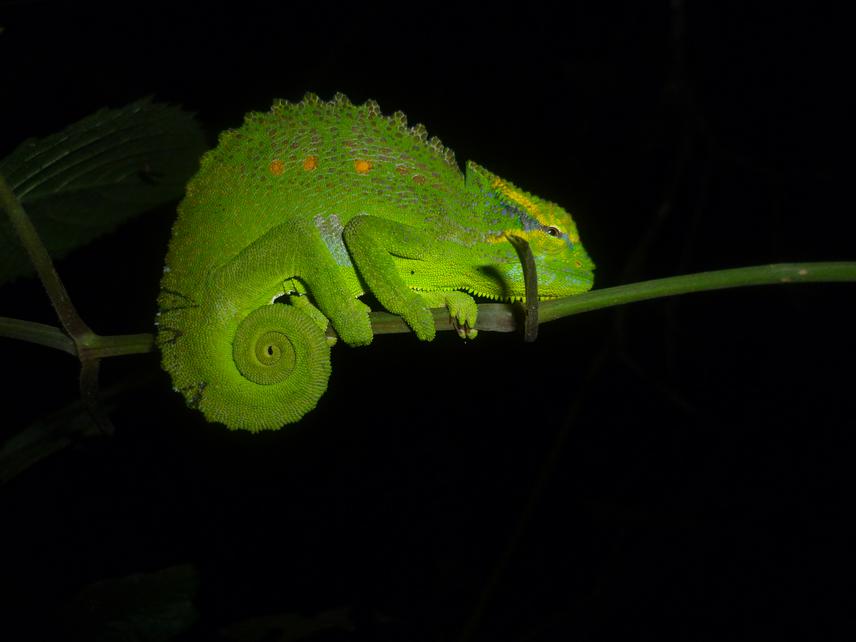Tapondjou Nkonmeneck Walter Paulin
The aim of the study is to gather fundamental data relating to the ecology of endemic chameleons and to use these data to assess the impact of human activities on the distribution and feeding habits.

Trioceros serratus male Mt Oku.
The project addresses a range priority concerns to conservation including: promoting sustainable conservation of endemic chameleons along the Cameroon Volcanic Line through information gathered from comprehensive research and monitoring.
The determination of endemic chameleons’ spatial distribution, perch habit, and feeding ecology has the potential to be used for conservation prioritization and management planning to be developed around the study site. Additionally, this information will provide baseline data that can be used to update the status of endemic chameleons nationally and internationally. Furthermore, this will be the basis for understanding human land-use behaviour and to define area necessary for the protection of endemic species. This will be carried out in close collaboration with the locals living in the various areas where endemic chameleons are found, establishing a platform for sensitization of local people to sustainable natural resource exploitation. The environmental benefits anticipated for this project will be: the protection of the montane habitat and indirectly the unique population of endemic mountain chameleons.
This project will help to understand:
- Chameleon feeding habits, which can help reducing direct, collect in the wild, through captive Breeding
- Document anthropogenic influence on the ecology and distribution of endemic chameleon from the volcanic line;
- Identify and document area with threats of major importance such as: habitat degradation, fragmentation, pet trade.
- Provide recommendations for the conservation and sustainable management of natural resources and endemic species of chameleons.